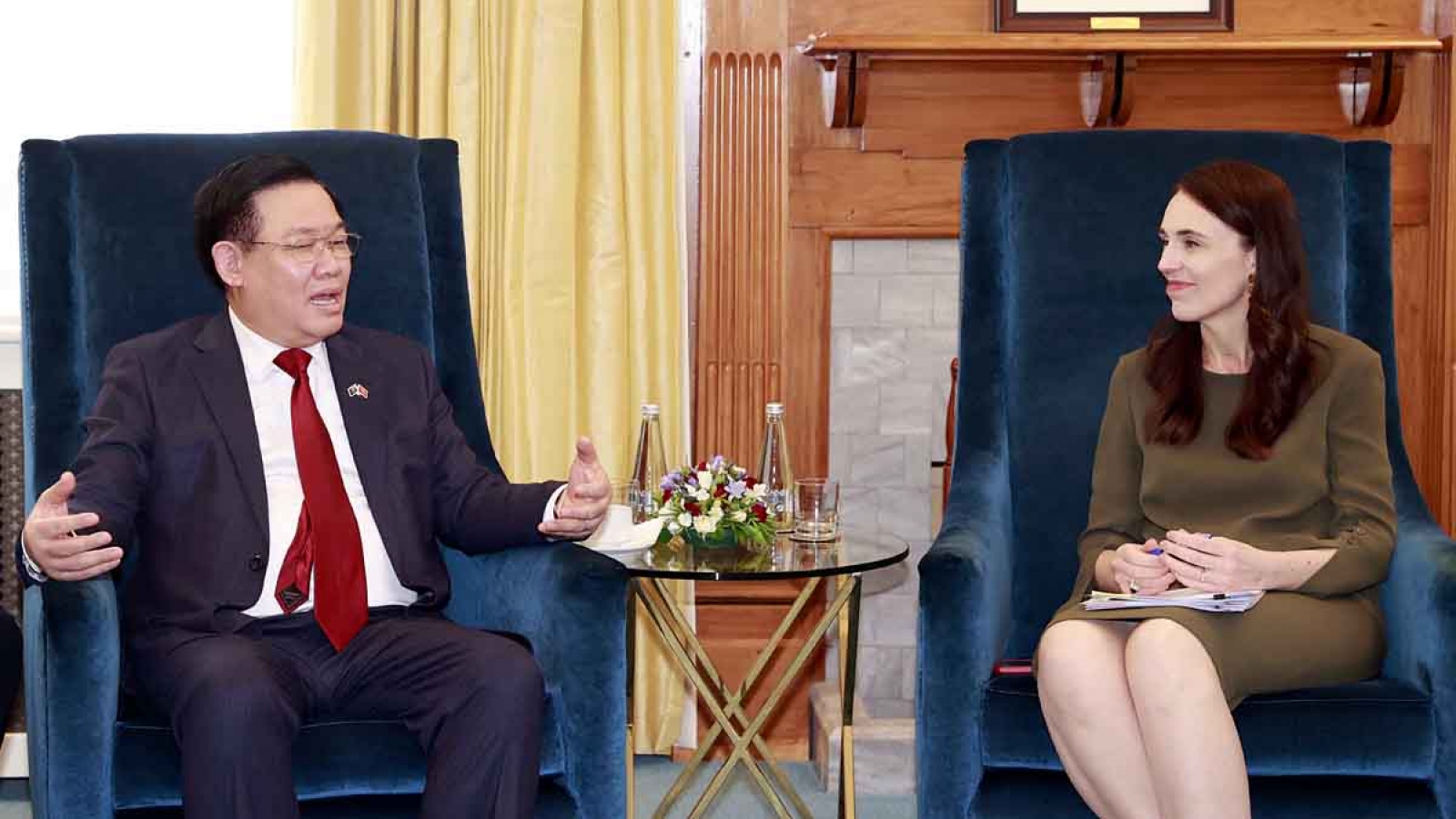Vietnam, New Zealand vow to step up cooperation in different areas
Vietnam and New Zealand have agreed to promote the role of their Joint Trade and Economic Commission to raise bilateral trade to US$2 billion by 2024, making it on par with their strategic partnership.

The consensus was reached by Vietnamese National Assembly Chairman Vuong Dinh Hue and head of the Foreign Affairs, Defence and Trade Committee of the New Zealand Parliament Jenny Salesa during their meeting in Wellington on December 6.
The two sides will also push ahead with the implementation of a memorandum of understanding on defence cooperation, and work towards the establishment of a defence dialogue and consultation mechanism at ministerial level.
They consented to enhance cooperation on training UN peacekeeping troops and maritime security, and consider expanding collaboration in the defence industry, military medicine, and search and rescue operations.
Hue lauded cooperation between parliamentary agencies of the two countries in promoting bilateral legislative ties as well as the strategic partnership between the two countries towards the 50th anniversary of their diplomatic ties in 2025.
The leader suggested New Zealand provide more scholarships for Vietnamese students and expand educational cooperation under different forms, and resume English language courses for Vietnamese civil servants after the COVID-19 pandemic.
He also urged the New Zealand commission to pay more attention to partnerships in science-technology and climate change response, and called on the country to continue taking into consideration the demand for market access of Vietnamese agricultural products.
For her part, Salesa affirmed that the New Zealand Parliament and her commission always support enhancing the relationship between the two countries, saying amid regional and global uncertainties, their bilateral cooperation should be strengthened.
New Zealand hopes for diversified trade ties with other countries, including Vietnam, especially in the context of both countries joining regional and international trade deals such as the ASEAN-Australia-New Zealand Free Trade Area, the Comprehensive and Progressive Agreement for Trans-Pacific Partnership (CPTPP), and the Regional Comprehensive Economic Partnership (RCEP), she said.

The same day, Hue had a meeting with New Zealand’s National Party leader Christopher Luxon, during which the top legislator affirmed the importance Vietnam attaches to relations with New Zealand in all Party, State, parliament and people-to-people exchange channels, including ties with different political parties of the New Zealand Parliament.
He conveyed an invitation from Party General Secretary Nguyen Phu Trong for Luxon to visit Vietnam.
Hue also used the occasion to thank New Zealand for its non-refundable aid to Vietnam over the years, scholarships for Vietnamese students, and its supply of COVID-19 vaccines.
In reply, Luxon noted that the National Party welcomes Hue’s official visit to New Zealand, and expressed his pride of the strong developments in the relations between the two countries, both bilateral and multilateral, as well as his hope to contribute to bolstering the relationship in all fields.
He stressed that ample room remains for cooperation in economy, trade, education-training, and national defence, saying the two countries should step up partnerships in education-training, people-to-people exchanges, and dairy production and processing, which are of New Zealand’s strengths.
Meeting New Zealand’s Education Minister Chris Hipkins, Hue emphasised that education-training is an important cooperation area in the bilateral ties, adding that about 3.5 million Vietnamese people will have demand for higher education by 2035.
Mentioning an education forum held in Hamilton as part of his visit, he said a total of 10 cooperation documents were signed by the two countries’ universities at the event.
Hipkins said New Zealand pays due attention to educational cooperation with Vietnam, and that the two countries still have much space to step up collaboration in this field.
According to the minister, the number of Vietnamese students in New Zealand has dropped to 2,700 compared with the pre-pandemic figure, and expressed his hope that it will grow in the time ahead.
Hue noted that the New Zealand scholarship programmes have contributed to high-quality personnel training in Vietnam, suggesting New Zealand share its experience in educational reform.
He also called on New Zealand to continue its support for Vietnam in improving university administration capacity and English language teaching, suggesting the two countries increase the exchange of students and teachers, and step up cooperation between their schools.
The leader urged New Zealand universities to open facilities in the Southeast Asian nation.
Also on December 6, the Vietnamese legislator had brief meetings with MPs O’Connor and Melissa Lee, Co-Chairpersons of the New Zealand-South and Southeast Asia Parliamentary Friendship Group, and attended a question and answer session of the host Parliament before wrapping up his official visit.


